Houthis’ Red Sea aggression presents new dilemma in Mid-East conflict
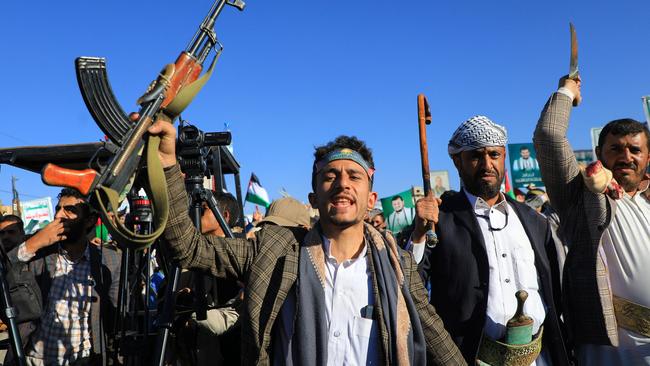
But Hezbollah has largely operated within an accepted set of rules governing conflict between the two sides. A deadly, if somewhat circumscribed, confrontation.
Few would have foreseen that Israel’s assault on Gaza would have opened up a multi-dimensional front 2000km to Israel’s south. Yet a number of drone and missile attacks, a ship assault and hijacking, and last week’s drone and missile attacks on shipping in the Red Sea have demonstrated the multi-front conflict that is now a feature of the region.
The Red Sea has been a maritime battleground of varying intensity since the Saudi-led incursion into Yemen in 2015. Over the years, the Houthis have targeted Saudi, US and Emirati warships with anti-ship missiles and unmanned explosives-laden remote-control vessels, and laid sea mines along the waterway.
They also occasionally attacked merchant vessels, including a liquefied natural gas and oil tanker in 2016 and 2017 respectively.
The recent Houthi activity targeting Israel, though, has featured two separate but complementary lines of operation. The first involves direct attacks against Israel proper. The southernmost point of Israel, Eilat, is more than 1800km away from Yemeni launch sites yet on October 19 the USS Carney intercepted three missiles and more than a dozen drones on their way to Israel, and only a few days ago the Israelis shot down a Houthi ballistic missile using their Arrow air defence system.
Other Houthi attacks have been interdicted by the Israeli air force.
The other line of operation involves the deliberate targeting of commercial vessels, particularly those with any connection with Israel.
Houthi spokesman Yahya Saree said a week ago that all Israeli-affiliated ships operating in the Red Sea would be targeted.
The ships that have been attacked to date appear to have some present or past connections with Israelis – the Unity Explorer, which was hit by a missile, is British-owned but managed by Unity Maritime, owned by Danny Ungar, the son of an Israeli shipping magnate.
And the bulk carrier No.9 that was also targeted is managed by a UK company but management had changed from the Israeli-owned company Zim two years ago, so the Houthis’ intelligence may not have been up to date.
And three weeks ago the Houthis seized the bulk carrier Galaxy Leader in a heliborne assault filmed and uploaded to social media. That ship was owned by a UK-registered company that was itself a subsidiary of an Israeli-incorporated company.
Given the lack of success of the Houthis’ missile and drone attacks against Israel – a difficult target to hit given the distance involved and the integrated air defence systems any attack must breach – adopting a maritime response strategy makes sense.
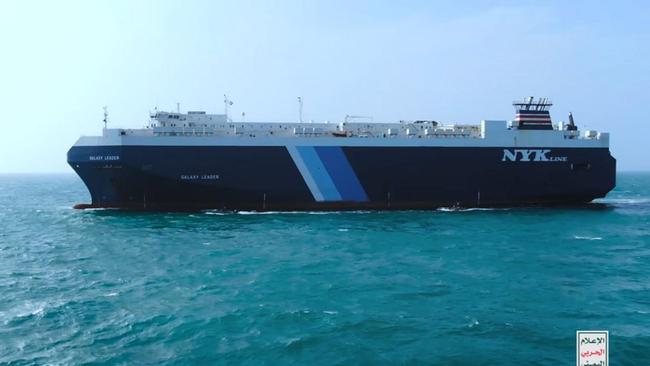
The Houthis can claim they are being discriminating by choosing targets with an Israeli connection, their likelihood of success is greater than their direct attacks against Israel proper, and by attacking shipping they internationalise the conflict and impose an economic cost on Israel by increasing the risk to shipping in the Red Sea.
About 10 per cent of global seaborne oil passes through the Bab al-Mandeb and, while global shipping insurers had already factored the regional security situation into premiums prior to the October 7 attack, freight rates still rose sharply.
Now, however, ships with any links to Israel are being forced to pay higher war risk premiums. Such ships are a tiny proportion of the overall trade fleet so it is unlikely to affect overall traffic so much as the willingness of companies to use Israeli-linked ships.
The Houthis’ actions are naturally in support of Iran’s broader desire for its “Axis of Resistance” partners to show support for the Palestinian cause by targeting Israeli forces and those of its closest ally, the US. But, as with all members of the so-called Axis, these groups also have their own reasons for targeting Israeli and American interests.
The Houthi movement has for more than 20 years adopted a very public slogan condemning the US and Israel, and has long been supportive of the Palestinian cause, despite the religious differences between the Houthis’ Zaydism and Sunni Islam.
The Houthis like to portray themselves as nationalists and find common cause with the Palestinians in this regard, even if the Houthis’ nationalist credentials can be questioned.
The lack of response to the Houthis’ acts of aggression, in contrast to the willingness to attack Hezbollah targets in Lebanon or pro-Iranian militia groups in Syria and Iraq, also reflect the fact that there is a tenuous ceasefire in Yemen and the Houthi movement remains in delicate peace negotiations with the Saudi-led coalition.

Riyadh, Abu Dhabi and Washington are all keen to see the conflict come to an end and fear a military response could set back peace negotiations. And in the broader context, concerns that any dramatic response to Houthi aggression may jeopardise improving relations between the Gulf states and Iran also factor into the diplomatic equation.
There has been talk of a multilateral naval force to deploy to the Red Sea to protect international shipping and thereby raise the cost to the Houthis of any future military responses, while reducing the cost to the US of providing naval and air defence protection. There is already an international presence in the waterway, as evidenced by last weekend’s downing of two Houthi drones by the French frigate Languedoc.
The question remains as to what type of action would represent the trigger for any significant military response, such as an air or missile strike on Houthi targets on the Yemeni mainland with the concomitant risks this would involve.
Short of something like a successful attack against a US warship or the death of Israelis from a Houthi missile or drone attack, it is likely that military responses to Houthi provocations will remain muted in the immediate future. Nothing is ever straightforward in the Middle East.
Rodger Shanahan is a former army officer and Middle East analyst.

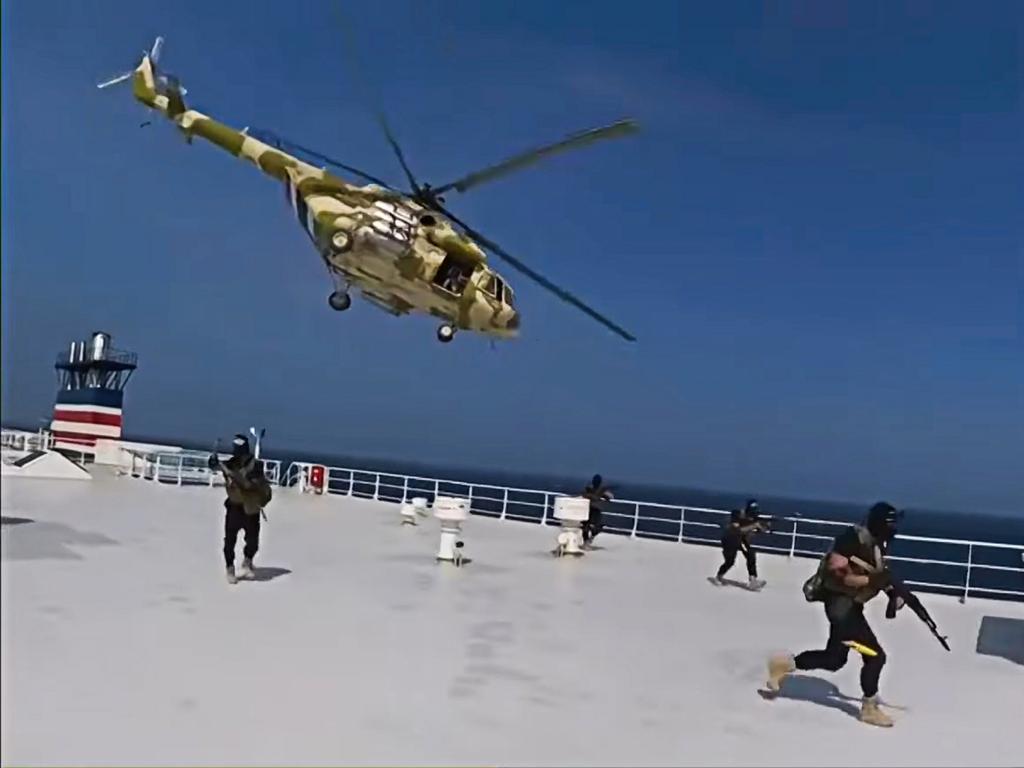
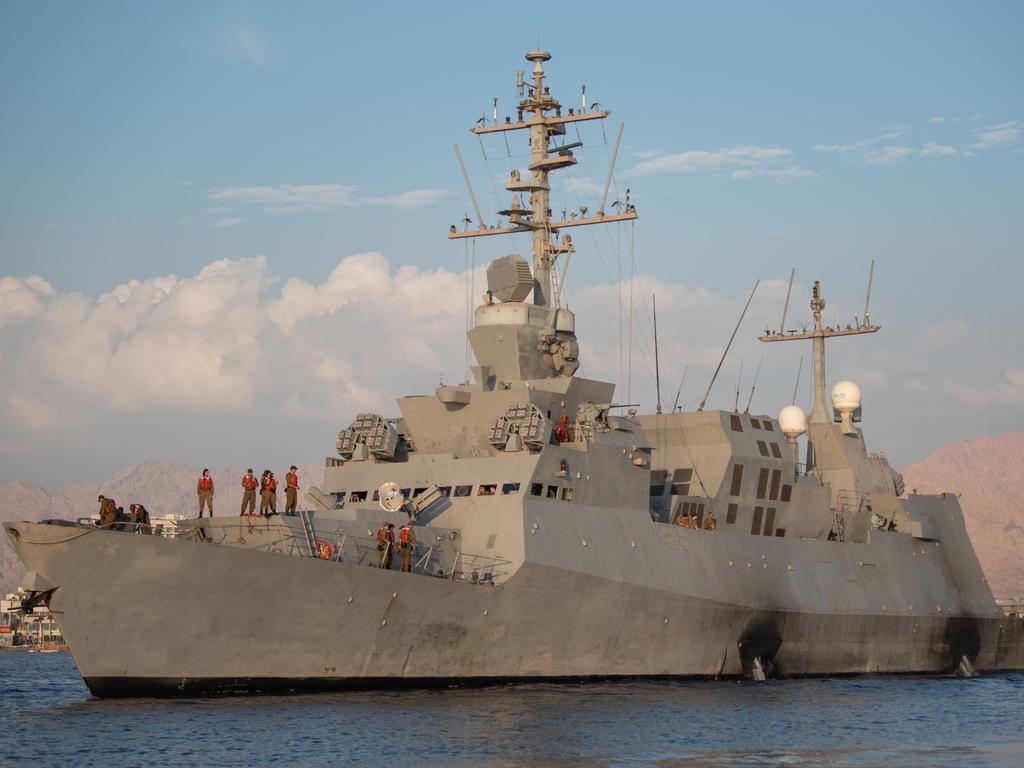
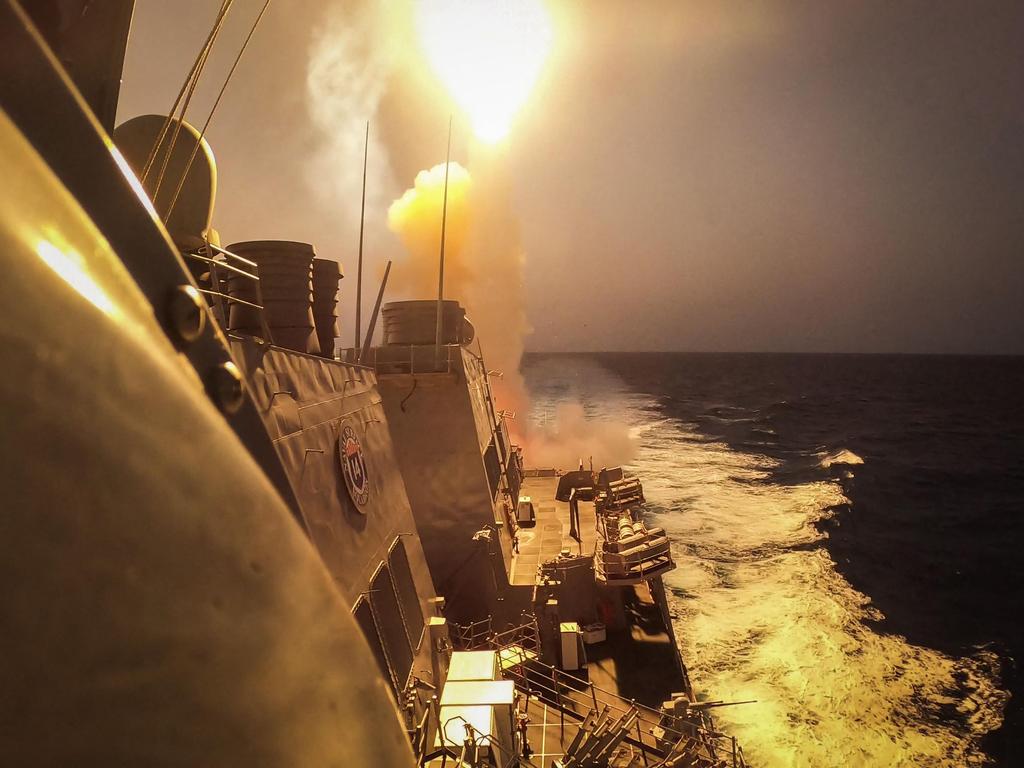
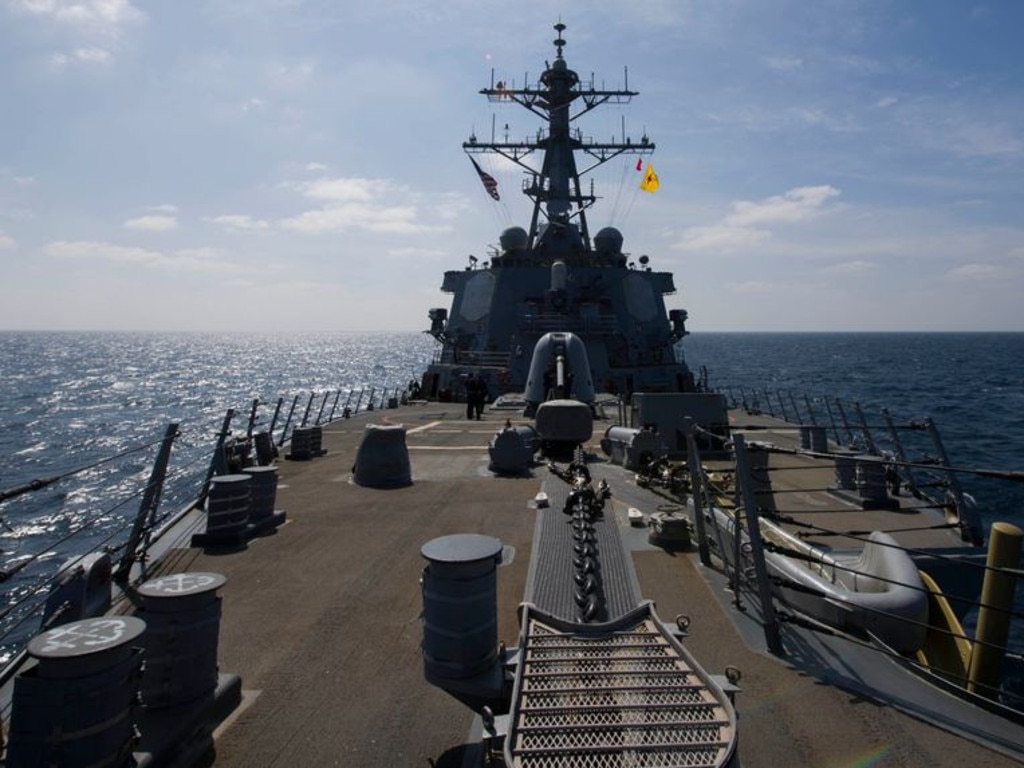

When Israel launched its assault into Gaza on October 19, all eyes were on Israel’s northern border with Lebanon as the focus for the region’s second front. And Hezbollah has certainly pressured Israeli forces, inflicting casualties and forcing them to retain military assets there.